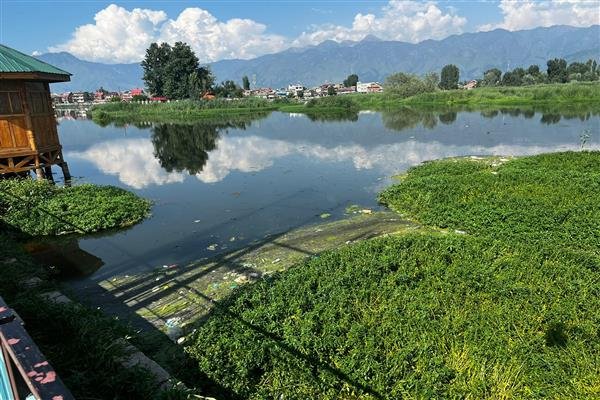Bottled water menace

Damage caused to our natural environment by bottled water plants should not be discounted
STC NEWS MONITORING DESK
Srinagar, 15,June 2024(STC): Over a period of time we have developed a unique ‘foreign’ habit. For quite some time now, it is common to see people here grossly misusing drinking water, taking a bottle, sipping it half and leaving it midway. These partially consumed water bottles are then dumped at venues, roadside and even thrown as waste in water bodies. Even we find these water bottles littered around the commercial and religious places.
So these plastic water bottles have become a common feature in our daily life. Bottled water is widely used by people from all walks of life and is considered to be convenient and safer than tap water.
Let us first understand why bottled water industry made inroads in our state when we have plenty of fresh water resources. Over a period of time, global warming phenomenon has led to pressure on our water management system resulting in deteriorating condition of the water supply networks. This has led to scarcity of drinking water around us. This scarcity of water has opened wide doors for bottled water industry in our state.
Advertising campaign emphasizing the idea that bottled water comes from crystal clear mountain springs or the run-off of pure glacial water has raised its demand in nook and corner of the state. I have found such ad campaigns loaded with the impression that the bottled water is purer and better tasting than tap water. But the fact is that the bottled water is not necessarily purer or safer than most tap water. I have come across a four-year international study which has concluded after testing over 1,000 bottles of 103 different bottled water brands that there was no significant difference in the content of tap water versus bottled water.
However, the dangerous dimension of the trade is that bottled water is an environment disaster. Water in the bottle may be hygienic, but the bottle carrying it, is polluting the environment and a serious health hazard. So far this dangerous plastic bottle has escaped the attention as a serious health hazard.
It’s interesting to note that the surge in demand for bottled water in the state, particularly in the Kashmir valley has encouraged locals in medium and small villages and even in some of the prosperous rural areas to manufacture and trade in bottled water. You can see good number of local brand of bottled water laying with the well known brands on the same shelf at a shop.
Few years before bottled water was considered as rich people’s choice and a sort of fashion to consume bottled water. But due to the aggressive marketing, it has penetrated so deeply in to our markets that now it has become very common to consume bottled water. Most interesting part of the trade is its penetration in to the rural areas.
In rest of the country, bottled water is more of a necessity than a choice. Reason is the lack of a readily available clean water supply. In J&K we have plenty of drinking water resources which basically lack proper management. In the name of developing bottle water plants for employment generation, the dangerous aspect of the trade – environmental disaster – has been overlooked. The plastic bottles are not usually recycled, and end up in landfills and waterways, polluting the environment. The water contained in the bottles is usually as good as tap water.
Can the growing use of bottled water here be taken as an evidence of failure of successive governments to provide safe drinking water to the people, or remove the fear of contamination in tap water which is forcing people to quench their thirst by buying bottled water? Notably, increase in usage of bottled water is going to impose special financial burdens even on ordinary people.
Precisely, the damage caused to our natural environment by bottled water plants should not be discounted. Why can’t we provide ideally a more efficient infrastructure to households with clean tap water? Alternative filtration methods should be considered to help lessen the impact of the massive footprint that bottled water is leaving in our state, particularly in Kashmir. Why plastic bottles can’t be replaced by environmental friendly containers.(STC)
(The views are of the author & not the institution he works for)







